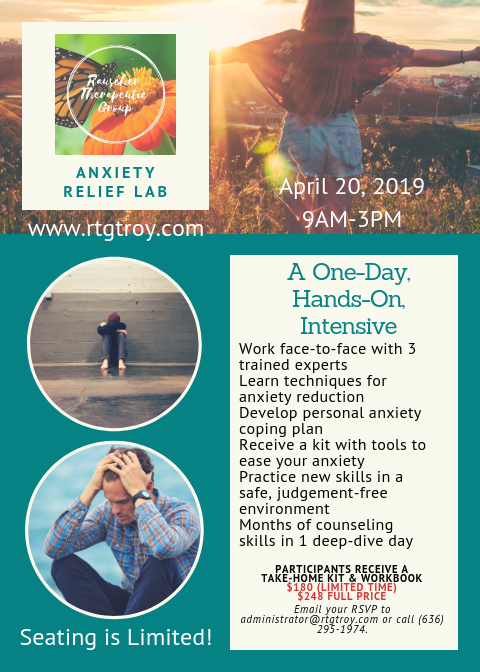Do you know what the physical signs of anxiety are? Along with the emotional symptoms there are many signs of anxiety that can manifest physically. Can you relate to any of these?

Muscle Tension & Aches
Anxiety can cause stiffness and tension in your muscles. Tightness in your neck, shoulders, back, and neck could all be signs of anxiety. Tense legs, clenched jaw muscles, and teeth grinding can also be attributed to anxiety.
Stomach issues or Digestive Problems

The stress your body experiences from anxiety can also manifest in digestive issues, like a fluttering stomach, nausea, constipation, or diarrhea. These symptoms can have a strong negative impact on daily activity. If left untreated digestive issues can worsen and lead to medical illness.

Headache
The psychological strain associated with anxiety can lead to severe headache, as a result of chronic worry, racing thoughts, and fear. People also report an increase in temperature change through their body, increased heart rate, and dizziness.
Jitters

Anxiety can make you feel edgy and lead to visible shaking, trembling, and irritability. You may feel restless, or fidgety. These signs may be noticeable to others.

Insomnia
The chronic worry and stress from anxiety can be exhausting. Many people with anxiety report a feeling of fatigue. Sometimes this combination can lead to an inability to fall asleep or trouble staying asleep. Overtime, insomnia can lead to a host of physical problems.
Shortness of Breath

Heart rate and blood pressure can increase with anxiety causing multiple symptoms. You may become hot, sweaty, feel dizzy, or experience difficulty breathing. Some people have reported thinking they were having a heart attack. Anxiety symptoms can be severe and frightening.
The Bottom Line
Anxiety is real. The symptoms are real. The symptoms listed above are only some of the physical signs your body may be experiencing. If you struggle with anxiety, reach out for help. You do not have to go through this alone. RTGTROY can help.




 The holidays are a fairly emotional time of the year for most of us. For some people, the holiday period brings memories of warm family gatherings and happy times. For others, it may bring feelings of depression related to loved ones who have passed on, or simply of childhood memories and experiences that weren’t very pleasant.
The holidays are a fairly emotional time of the year for most of us. For some people, the holiday period brings memories of warm family gatherings and happy times. For others, it may bring feelings of depression related to loved ones who have passed on, or simply of childhood memories and experiences that weren’t very pleasant.
 Everybody forgets things at times. But as we age most of us may become aware that our memories are not quite as sharp as they once were. We may find it happening more often that we forget where we left our car keys or those darn reading glasses, or even why we just walked into the kitchen.
Everybody forgets things at times. But as we age most of us may become aware that our memories are not quite as sharp as they once were. We may find it happening more often that we forget where we left our car keys or those darn reading glasses, or even why we just walked into the kitchen.

 Most of us, most of the time, want to be nice, to do what is asked and to please those asking for our help. We usually try to be accommodating at work, with our friends, and with our family members.
Most of us, most of the time, want to be nice, to do what is asked and to please those asking for our help. We usually try to be accommodating at work, with our friends, and with our family members.